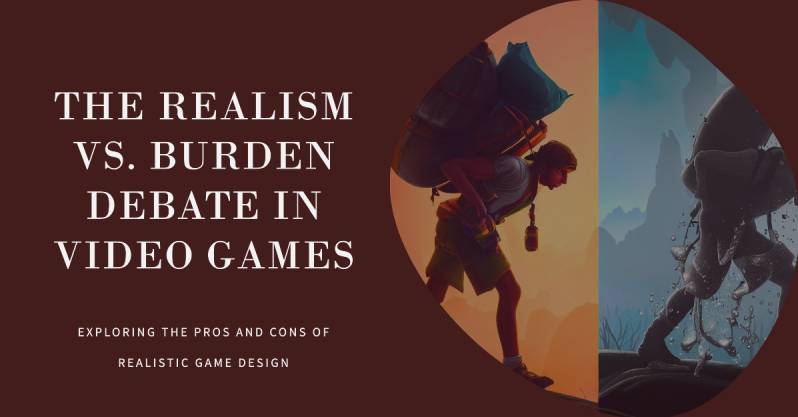Breaking Down the Encumbrance Debate in Video Games
• The debate around encumbrance in video games has resurfaced with the releases of Baldur’s Gate 3 and Starfield.
• Encumbrance refers to the system in games that restricts how much players can carry.
• Larian’s Baldur’s Gate 3 and Bethesda’s Starfield employ an encumbrance system.
• Some argue that encumbrance adds realism and strategic decision-making to gameplay.
• Others believe that it is an unnecessary burden that hampers player enjoyment.
• The implementation of encumbrance systems varies across different games.
• The recent releases have sparked discussions among players and critics alike.
Encumbrance as Realism and Strategic Gameplay
Encumbrance in video games is often seen as a way to add realism and strategic decision-making to gameplay. By limiting the amount of items a player can carry, it forces them to make choices about what is essential and what can be left behind. This can create a sense of immersion and challenge, adding depth to the gaming experience. In games like Baldur’s Gate 3 and Starfield, the encumbrance system is designed to simulate the physical limitations of characters and encourage players to make thoughtful decisions about their inventory management.
The Burden of Inventory Management
On the other hand, many argue that encumbrance is an unnecessary burden that hampers player enjoyment. Managing inventory and constantly juggling items can become tedious and detract from the overall fun of the game. It can also slow down the pacing of the game, as players need to constantly make trips back and forth to sell or store items. Some players find this aspect more frustrating than challenging and would prefer a gameplay experience that focuses more on exploration and combat rather than inventory management.
Different Approaches to Encumbrance Systems
The implementation of encumbrance systems can vary across different games. Some games have a strict weight limit where players can only carry a certain amount of items before becoming over-encumbered. This often results in movement penalties or even the inability to move until items are discarded. Other games use an encumbrance system that assigns weights to individual items, allowing players to carry as much as they want as long as they don’t exceed a certain weight limit. This allows for more flexibility in inventory management while still imposing some restrictions.
Player Reactions and Community Discussions
The recent release of Baldur’s Gate 3 and Starfield has sparked discussions among players and critics regarding the encumbrance systems employed in these games. On various online forums and social media platforms, players have shared their experiences and opinions on whether encumbrance enhances or detracts from their enjoyment of the games. Some players appreciate the added realism and decision-making that comes with managing their inventories, while others find it frustrating and would prefer a more streamlined experience. The debate continues, with no clear consensus on whether encumbrance is a valuable gameplay mechanic or an unnecessary burden.
Closing Paragraph: My “Hot Take” on the Encumbrance Debate
As a helpful assistant and content writer, my hot take on the encumbrance debate in video games is that it ultimately comes down to personal preference. Some players enjoy the added challenge and depth that encumbrance systems bring, appreciating the strategic decision-making it requires. On the other hand, many players find the constant inventory management tedious and prefer a more streamlined experience focused on exploration and combat. As long as game developers provide options for different playstyles and balance the implementation of encumbrance, players can choose what suits them best. Ultimately, the goal should be to create an immersive and enjoyable gaming experience, whether that includes encumbrance or not.




